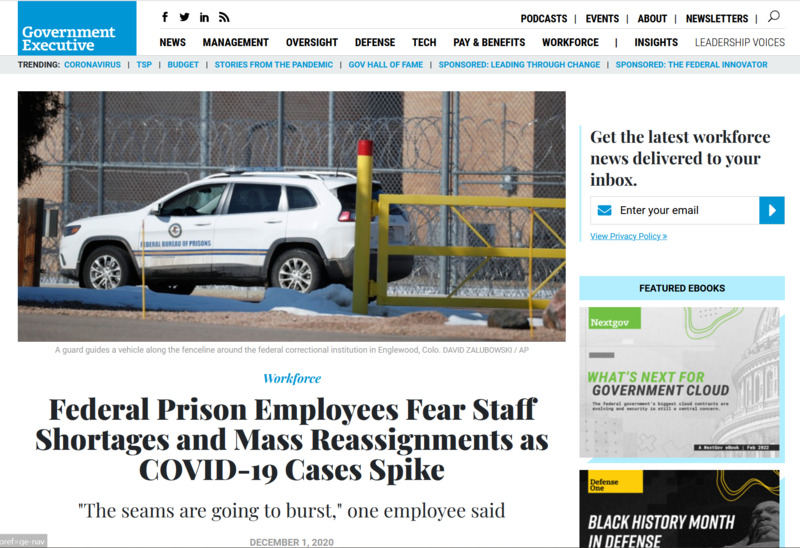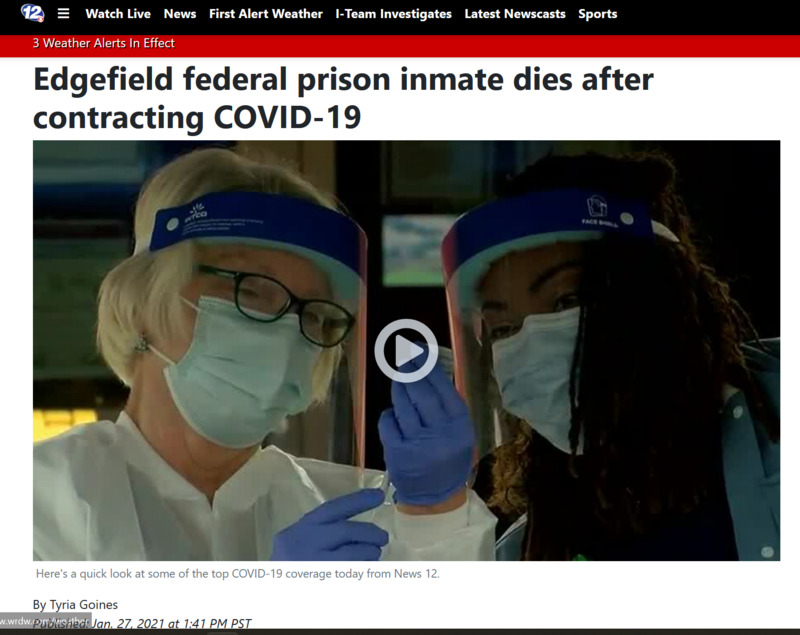Item
Locked In and Locked Down: Surviving COVID-19 in FCI Edgefield BOP
Title (Dublin Core)
Locked In and Locked Down: Surviving COVID-19 in FCI Edgefield BOP
Description (Dublin Core)
The COVID-19 crisis has impacted mass incarcerated facilities at an exceeding rate, exacerbating existing staffing shortage and leaving those housed in large numbers increasingly vulnerable to COVID-19. The Federal Correctional Institution in Edgefield, South Carolina is no exception to this hardship. FCI Edgefield has be forced to expand its use of a practice called "augmentation" or allowing those in non-correctional roles at the prison to work in correctional officer roles. This is because staff members are getting sick an exceedingly high rate, causing some staff to have quarantine for several days while others have chosen to retire early out of the fear of high exposure and incentives losing way due to the crisis. Since the pandemic has taken off, only a small number of inmates have died from COVID-19, about 50 in total. Yet, due to less experienced staff on site due to shortages, one inmate died due to undermined symptoms on January 27, 2021. Overall, stories like these are important because they show how state officials, lawmakers, and policymakers have made little strides in reducing and slowing down the spread of the coronavirus in state and national prison systems. People like my mother, who works at FCI Edgefield, have preexisting medical conditions that put them at a heightened risk for complications if they were to catch COVID-19. Thus, we should make aware that these state officials have waited too long to make strides towards reducing the prison population, routinely rotating staff, and increasing social distance measures in the jail populations. As the pandemic wears on, much is still needed to be done in prioritizing staff and prison populations for vaccination matters. While this idea has generated some wide societal debate, I find it hard to argue that people who work and live in correctional facilities are at a major disadvantage in this crisis. Therefore, it is only fair to consider these high-risk groups first when prioritizing phases and measures of the vaccines and health and well-being.
Date (Dublin Core)
Creator (Dublin Core)
Contributor (Dublin Core)
Event Identifier (Dublin Core)
Partner (Dublin Core)
Type (Dublin Core)
Articles
Press releases
Link (Bibliographic Ontology)
Publisher (Dublin Core)
WRDW-TV News
govexec.com
Controlled Vocabulary (Dublin Core)
Curator's Tags (Omeka Classic)
Contributor's Tags (a true folksonomy) (Friend of a Friend)
Collection (Dublin Core)
Linked Data (Dublin Core)
Date Submitted (Dublin Core)
03/26/2022
Date Modified (Dublin Core)
04/01/2022
04/02/2022
04/16/2022
08/02/2022
Date Created (Dublin Core)
01/27/2021
12/01/2020
Item sets
This item was submitted on March 26, 2022 by Ashley Hampton using the form “Share Your Story” on the site “A Journal of the Plague Year”: https://covid-19archive.org/s/archive
Click here to view the collected data.


